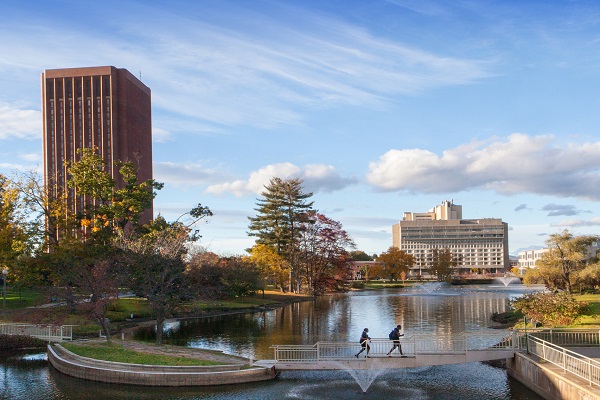UMass Amherst’s Colin Gleason Earns 2023 AGU Hydrology Hydrologic Sciences Early Career Award
Colin Gleason, associate professor of civil and environmental engineering and Armstrong Professional Development Professor, has been announced as the American Geophysical Union’s 2023 Hydrology Hydrologic Sciences Early Career Award recipient. The honor is bestowed upon individuals for meritorious work or service toward the advancement and promotion of discovery and solution science. AGU, the world’s largest Earth and space science association, annually recognizes a select number of individuals as part of its Honors and Recognition program.
Gleason is recognized by the global Earth and space sciences community for his dedication to advancing Earth and space sciences; the AGU hydrology section chose Gleason in recognition of his outstanding contributions to global remote sensing hydrology theory and practice.
“This one means a lot to me,” says Gleason. “AGU is my primary academic organization, and I’ve attended their annual meeting every year since I started my Ph.D.” He has been extremely involved in the organization—reviewing papers when asked, submitting his own work for publication and helping to organize the Fall Meeting. “Lots of folks I admire have won this one, and this really helps validate UMass hydrology within this massive organization.”
He highlights how his work has centered on the questions of: how much water exists and where it is on Earth at any given time on a global scale? “People would say it’s a waste of time and funding; that for the same funding of launching a satellite, you could have funded so much field work,” he says. “But we’ve proven that this work is worthwhile. It is viable.”
He’s also proud of the strides that have been made to weave together these differing viewpoints. “We spent about half a decade arguing satellite versus ground-based, but it’s both,” he says. “The more ground data you have, the better our space data is.” On the other hand, he points out that there are some expeditions that just aren’t feasible: “Are you going to send out field teams to every river on the planet? To Siberia or all of China?” He has worked to help bridge the gap and demonstrate that these two practices are complementary, not in competition.
Gleason will be recognized at AGU23 in December, which will convene more than 25,000 attendees from over 100 countries in San Francisco and online.

